An administrative guru, a workaholic, and a developmental wizard, Mian Muhammad Shehbaz Sharif, currently serving as the prime minister of Pakistan, is a game changer in Pakistani politics. His greatest achievement in recent times was to make the anti-people project Naya Pakistan collapse in collaboration with other democratic powers of Pakistan. The younger brother of Nawaz Sharif and three-time chief minister of Punjab, he is known as an overhauler and achiever.
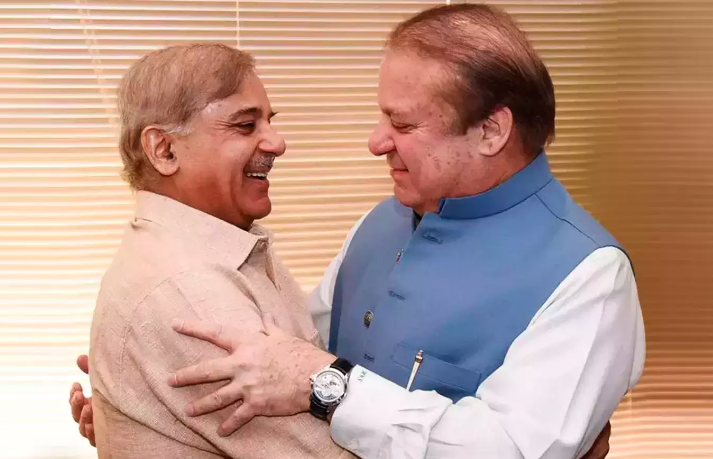 With an eager mind committed to resolving Pakistan’s economic issues and a humanitarian heart dedicated to ameliorating the conditions of the destitute, Shehbaz Sharif has earned accolades not only in Pakistan but also internationally. Chinese officials invented the term ‘Shahbaz speed’ — a synonym for efficacy and transparency.
With an eager mind committed to resolving Pakistan’s economic issues and a humanitarian heart dedicated to ameliorating the conditions of the destitute, Shehbaz Sharif has earned accolades not only in Pakistan but also internationally. Chinese officials invented the term ‘Shahbaz speed’ — a synonym for efficacy and transparency.
His unwavering loyalty towards his elder brother and his party is commendable, while his unmatched vision for the development of Pakistan sets him apart. Furthermore, his dedication to keeping all democratic stakeholders onboard adds more feathers to his cap.
Born and raised in Lahore, the younger Sharif got educated at the prestigious Government College Lahore. He joined his father’s business before entering into politics. He was also elected president of the Lahore Chamber of Commerce and Industries in 1985. In 1988, he was elected as a member Punjab Assembly. In 1993, he served as the leader of the opposition in the Punjab Assembly. In 1997, he was elected as the chief minister (CM) of Punjab. During his tenure, he played a pivotal role in transforming the cities of Punjab into modern urban centres. As CM of Punjab, he spearheaded the development of an extensive road and infrastructure network, which began to flourish under his leadership. Regrettably, his time as CM was cut short by a military coup orchestrated by the late General Pervez Musharraf in 1999.
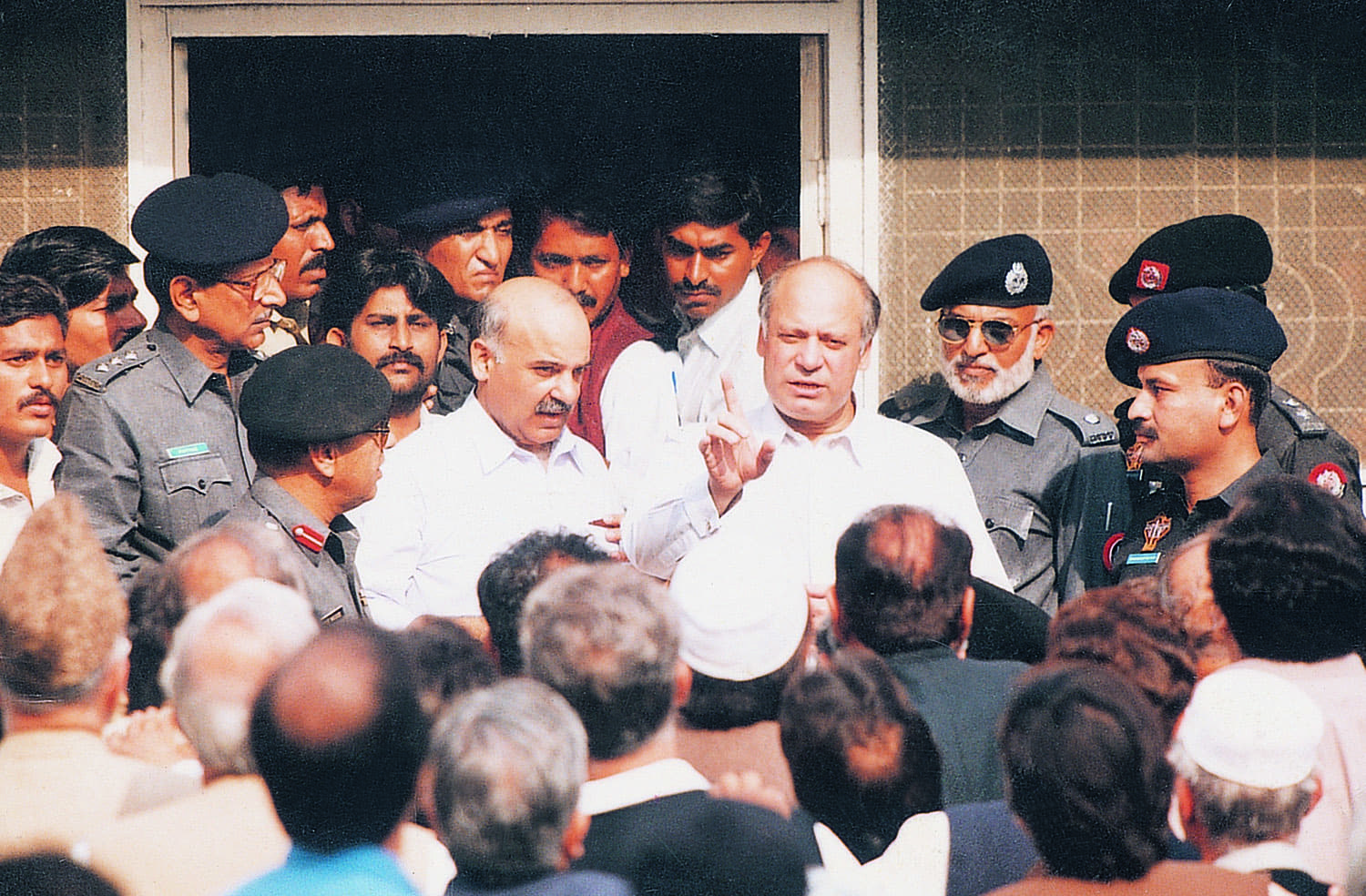
During the Musharraf regime, he and his family were exiled to Saudi Arabia, and his young son, Hamza Shahbaz, was placed under house arrest. Despite facing immense pressure, Shehbaz Sharif displayed unwavering loyalty to his elder brother and party. He was tempted to defect from the party, but he staunchly refused to betray his principles, prioritising the well-being of the larger public, and upholding the values of democracy.
After the end of the Musharraf regime, Pakistan Muslim League came into power in Punjab. Shehbaz Sharif again became the chief minister of Punjab. This period proved to be a true test of his leadership abilities, as he inherited an economic mess left behind by the previous regime. He initiated mega-developmental projects like the Metro Bus Service, Orange Line Train, a laptop scheme for students, scholarships under the Punjab Education Endowment Fund, modernisation of the public school system, and the establishment of edifying Daanish Schools. Additionally, the reformation of the higher education sector was achieved through the establishment of new universities across the province.
His tenure as CM Punjab continued beyond the 2013 general elections, reflecting the trust and confidence the people had in his leadership and vision for progress and development in the province.
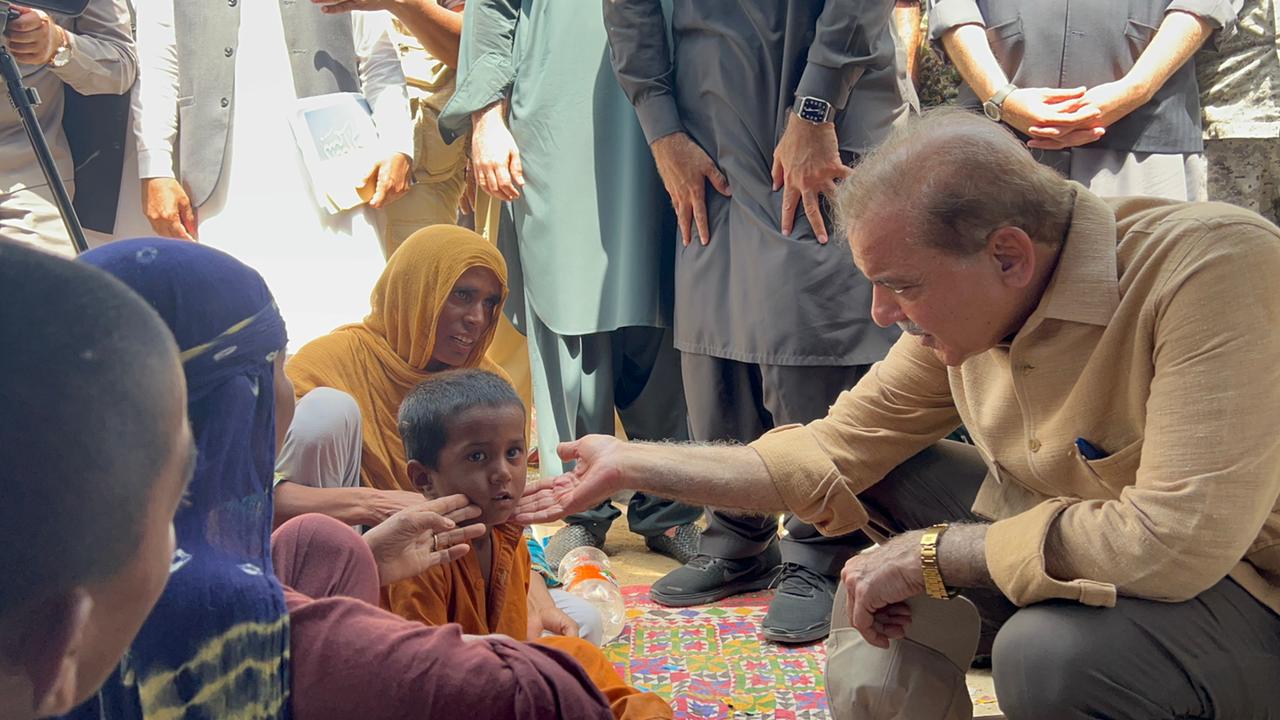 During his third tenure as CM, Punjab witnessed a remarkable transformation. Bold and modern projects like Safe Cities Authorities were successfully established, while an efficient e-governance system was put in place under Punjab Information Technology Board (PITB). The provision of free internet facilities further enhanced accessibility for the public. To elevate the quality of higher education, the Punjab Higher Education Commission was set up, and the innovative concept of community colleges was introduced. Police reforms were undertaken to ensure a more effective and responsive law enforcement system. The proliferation of information technology was prioritised, fostering progress and innovation throughout the province. Additionally, his ambitious plan for the Silicon Valley-styled Lahore Knowledge Park showcased a commitment to fostering a knowledge-based economy.
During his third tenure as CM, Punjab witnessed a remarkable transformation. Bold and modern projects like Safe Cities Authorities were successfully established, while an efficient e-governance system was put in place under Punjab Information Technology Board (PITB). The provision of free internet facilities further enhanced accessibility for the public. To elevate the quality of higher education, the Punjab Higher Education Commission was set up, and the innovative concept of community colleges was introduced. Police reforms were undertaken to ensure a more effective and responsive law enforcement system. The proliferation of information technology was prioritised, fostering progress and innovation throughout the province. Additionally, his ambitious plan for the Silicon Valley-styled Lahore Knowledge Park showcased a commitment to fostering a knowledge-based economy.
Under his governance, significant strides were made in improving law and order conditions. Criminal gangs were dismantled, and concerted efforts resulted in bringing the street crime rate to a minimum level, making Punjab a safer place for its residents.
In the post-Panama scandal, a smear campaign against the entire Sharif family was instigated to give political benefit to Imran Khan in the upcoming election. Despite the pressure, Shehbaz Sharif remained adamant to carry on his development work in Punjab. In 2018, as a result of a rigged general election, Imran Khan became the prime minister of Pakistan. When his elder brother, Mian Muhammad Nawaz Sharif was banned from holding public or party office, Shehbaz Sharif took the reins of the party. Fake cases on flimsy grounds were lodged against him and his family at the whim of Imran Khan. These cases were later dismissed by the court for lack of evidence. Shehbaz Sharif played an effective role as opposition leader in the National Assembly and called political parties to agree on a ‘charter of economy’ to bring Pakistan out of the vortex in which the PTI government had pushed the country.

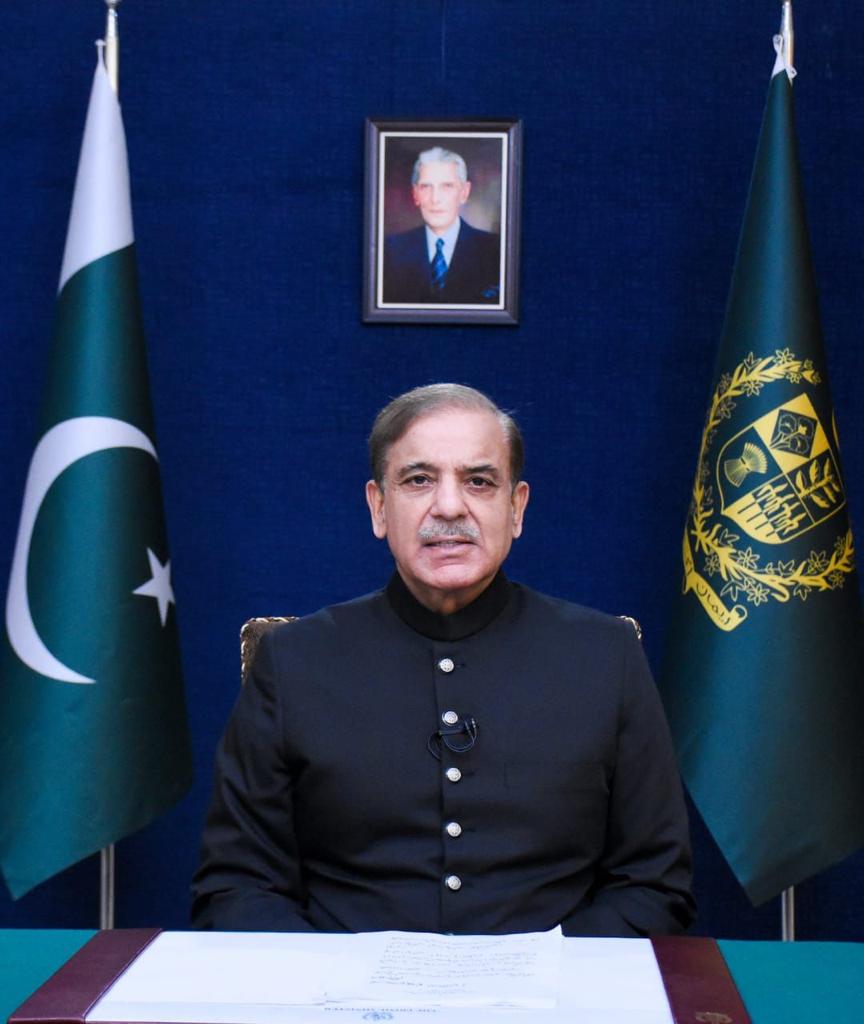 Eventually, after the success of the vote of no confidence against Prime Minister Imran Khan, Shehbaz Sharif was elected as the prime minister of Pakistan in April 2022. The legacy bequeathed by the PTI’s government was a bankrupt economy littered with mismanagement and misgovernance at every tier of the federal and provincial governments. Faced with sit-ins, protestations and agitation by the PTI and its demagogic leader, Imran Khan, he did not bow down to populist pressure and continued his efforts to bring the economy and governance back on track.
Eventually, after the success of the vote of no confidence against Prime Minister Imran Khan, Shehbaz Sharif was elected as the prime minister of Pakistan in April 2022. The legacy bequeathed by the PTI’s government was a bankrupt economy littered with mismanagement and misgovernance at every tier of the federal and provincial governments. Faced with sit-ins, protestations and agitation by the PTI and its demagogic leader, Imran Khan, he did not bow down to populist pressure and continued his efforts to bring the economy and governance back on track.
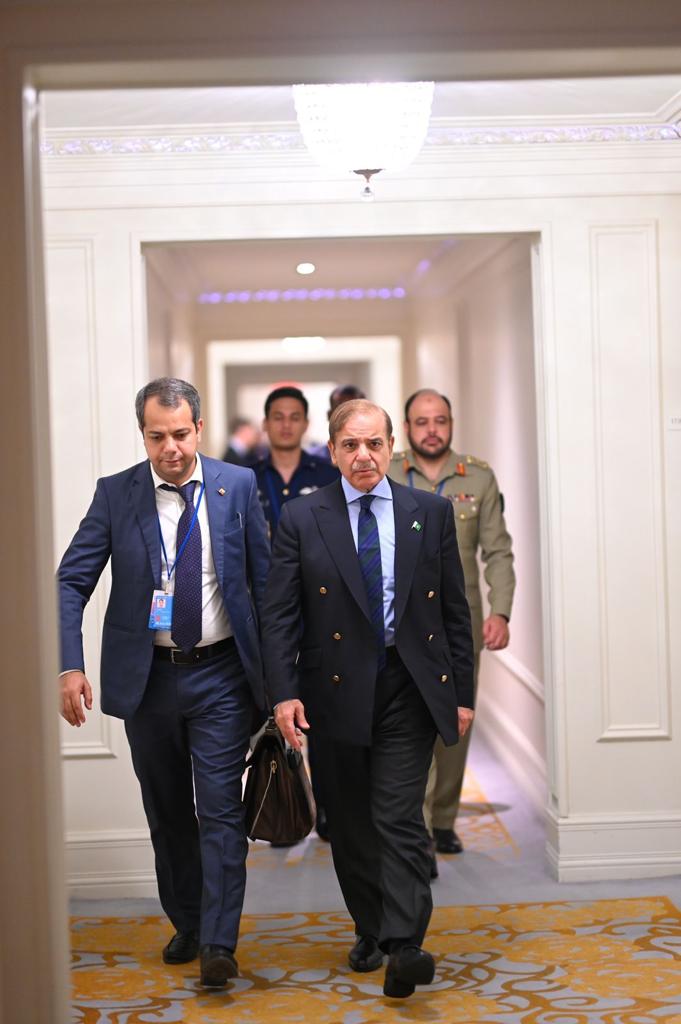 Shehbaz Sharif saved Pakistan from defaulting on its external debt payments by securing a $3 billion standby agreement with the IMF. He did not shy away from taking tough decisions that could impact PML-N’s popularity, because it was in the interest of the country. His focus on youth development through education can pave the way for Pakistan to contribute to the fourth industrial revolution known as the knowledge economy. His whirlwind tour to all nooks and corners of Pakistan for the mobilisation of youth will lessen the political polarisation and reduce hate and resentment inculcated by Imran Khan among the youth.
Shehbaz Sharif saved Pakistan from defaulting on its external debt payments by securing a $3 billion standby agreement with the IMF. He did not shy away from taking tough decisions that could impact PML-N’s popularity, because it was in the interest of the country. His focus on youth development through education can pave the way for Pakistan to contribute to the fourth industrial revolution known as the knowledge economy. His whirlwind tour to all nooks and corners of Pakistan for the mobilisation of youth will lessen the political polarisation and reduce hate and resentment inculcated by Imran Khan among the youth.
Once his vision is materialised into reality, it will have immense benefits for the socio-economic development of Pakistan. In his recent address to the nation, he gave out a broader message to all and sundry: let’s bury the hatchet and come together as a nation to make Pakistan a developed and progressive state.








